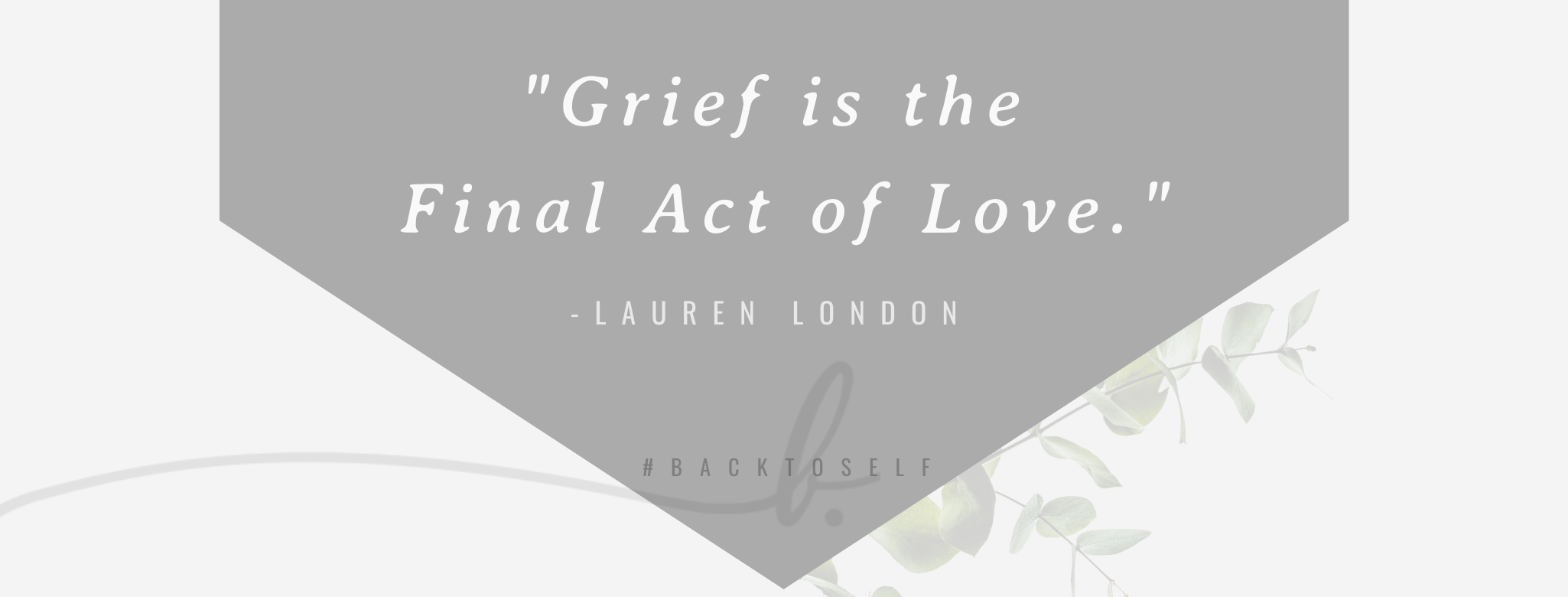How Do you Process Grief?
JESS
This is an excerpt from my August 2020 Newsletter, where I nerd out about emotions and language and offer a monthly journal prompt. Click here to sign up for future newsletters.
“Grief is the Final Act of Love.”
This realization, so powerfully and simply expressed by Lauren London in her eulogy, shifted the way I grappled with grief. All of April, I’d struggled to name the weight in my stomach. It felt like I had swallowed the ocean; I cried every day. When I recognized my emotions included grief, I noticed two immediate responses:
I “didn’t deserve” to feel grief. Everyone else had “real” reasons to grieve, while I’ve been relatively fortunate.
I pushed away from grief, rather than letting it in.
The downfall: by not allowing myself to grieve, I was unable to touch what I needed to release and move out of my funk.
In recent months, I’ve been thinking a lot about grief. I encountered parts of myself I needed to mourn as I unpacked old, resurfacing traumas. Furthermore, society continues to devastate, death is everywhere. I was losing friends. My friends were losing loved ones. (And last night, we learned that Chadwick Boseman passed from cancer -- for personal reasons, that broke me). So grief, again, is very fresh and raw.
I struggled most with permission to mourn my SELF -- my past identities, feelings of safety, control, realities, old relationships, friendships, hopes. I kept negotiating my way out of it with positivity or anger. I was unable to touch grief in all these different pockets because it felt too dramatic, too traumatic, too uncomfortable. I confused it for other emotions. I distracted myself.
But what if grief is, simply, the ultimate evolution of Love?
I remembered that Love, in so many ways, naturally, inevitably, ends in grief. Grief and strong Love both feel so similar -- perhaps because they are continuations of each other.
A reframe: How can grieving shift when we seek to name our Love? Even if there is rage, pain, or shame in that Love? Even if what we loved are lost parts of ourselves? Could that help me release my pain differently? Help me understand differently? Close chapters differently? Move on differently?
Could grieving someone be an act of deeply, fully loving them? Could grieving my past experiences be an act of deeply, fully, loving myself?
Once I acknowledged how much I had loved certain jobs, certain friends, certain beliefs... certain privileges, certain dreams... And most challenging, how much I had loved people who hurt me... I unraveled. And I softened. I held my former self close to my heart and told her how much I loved her. I mourned her. I lightened.
If we saw grief as the next phase of love, does that make it easier or harder to let in?
What if I asked, whenever Grief demanded space, what it wanted me to know about Love?
JOURNAL PROMPT:
If Grief is Love’s final evolution,
could I evolve my Love by honoring Grief today?
Could I sit with myself and ask Grief:
What do you want me to know about Love in this moment?
What do you want me to learn about my heart?
About what I want more in this world?
About where I come from and where I hope to be?
------------
For my friends who are grieving today, I love you. So much. I am with you.
Love,
Jess.

